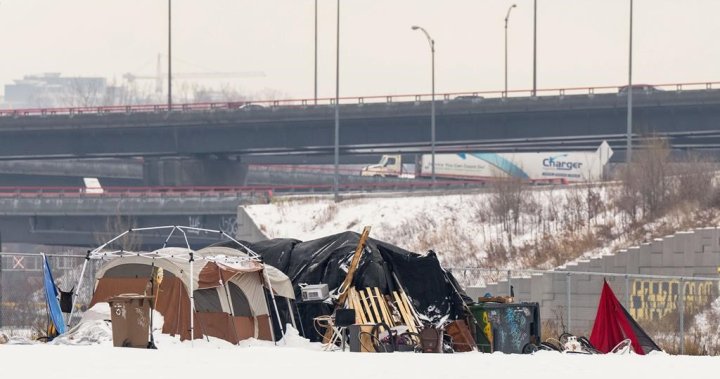The rising tide of homelessness in Montreal has reached a critical juncture, leaving frontline social workers grappling with an unprecedented crisis as winter descends. Unlike previous years, where the tent encampments dwindled by December, the city now faces a persistent and growing population living in precarious conditions, a stark reality underscoring the urgent need for comprehensive solutions. Shelters are overflowing, warming stations offer temporary respite rather than long-term refuge, and public spaces like subway stations and 24-hour restaurants have become makeshift shelters for those with nowhere else to turn. This dire situation has already claimed lives, with the recent death of a homeless man attributed to hypothermia serving as a tragic reminder of the life-threatening consequences of inadequate support.
Experienced social workers like Stéphanie Lareau, with two decades of experience supporting Montreal’s homeless population, convey a sense of powerlessness in the face of this growing crisis. The unprecedented number of tents remaining throughout the winter, coupled with the early saturation of shelter capacity, highlights the severity of the situation. Alison Meighen-Maclean, another veteran in the field, echoes this sentiment, emphasizing the inadequacy of temporary warming stations in addressing the fundamental need for stable housing. The current housing market exacerbates the problem, creating a vicious cycle where eviction or job loss leads to homelessness, and re-entering the housing market becomes an insurmountable hurdle for those already marginalized.
The interconnectedness of the housing and homelessness crises is undeniable. As rents soar and affordable housing becomes increasingly scarce, individuals relying on social assistance are particularly vulnerable to eviction and displacement. The COVID-19 pandemic further amplified these challenges, contributing to a significant increase in the homeless population. Moreover, the changing demographics of homelessness, including a growing number of seniors facing renovictions, reveal a widening scope of vulnerability within the city. These seniors, often unfamiliar with their rights and legal protections, are easily exploited and find themselves thrust into homelessness.
While the Quebec government reports a reduction in the homeless population, citing efforts to house individuals and provide mental health services, frontline workers paint a different picture. The apparent decrease in numbers doesn’t reflect the lived reality on the streets, where the demand for shelter and support continues to outpace available resources. Social Services Minister Lionel Carmant acknowledges the need for more supportive housing, emphasizing the importance of providing long-term support beyond temporary shelter stays to prevent individuals from returning to the streets. This approach, which focuses on equipping individuals with independent living skills and providing stable housing options with individual kitchens and private spaces, represents a shift towards a more sustainable solution.
However, despite these promising programs, significant gaps remain. Vulnerable populations like seniors requiring adapted apartments, couples, and individuals with pets face additional barriers to securing housing. The complexities of these individual circumstances often necessitate tailored support and resources, which are currently insufficient. Community organizations and intervention workers play a crucial role in building trust and connecting unhoused individuals with essential services, from obtaining health insurance cards to accessing healthcare.
Deploying nurses directly to shelters and encampments has also proven effective in providing on-site care, preventing health deterioration, and reducing reliance on emergency services. This proactive approach aims to provide equitable access to healthcare for the homeless population, mirroring the care available to other Quebec residents. While progress has been made in improving access to services, there’s a collective recognition that more work is needed to address the multifaceted challenges of homelessness in Montreal. The dedication of frontline workers, coupled with a commitment to long-term supportive housing solutions, offers a glimmer of hope in tackling this complex and persistent crisis.

